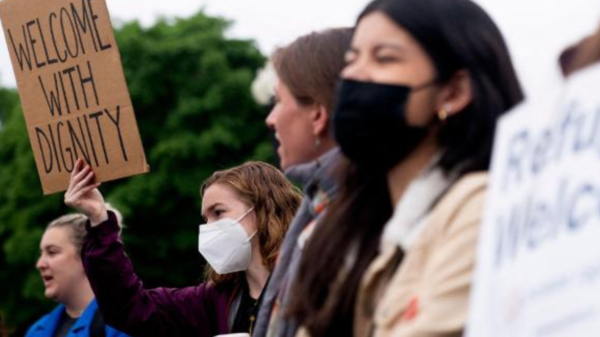Ensuring uninterrupted healthcare coverage for the youngest children is vital, especially in a state like California, where investments in early childhood development are crucial for future success. However, despite legislative approval for multi-year continuous Medicaid coverage for children aged 0-5, securing necessary funding remains elusive.
The repercussions of this funding shortfall are significant. Nearly 284,000 children in California have been disenrolled from Medi-Cal during the eligibility renewal process mandated by the federal government for Medicaid beneficiaries. Many disenrollments stem from administrative hurdles and errors rather than children no longer qualifying.
This issue strikes at the heart of California’s commitment to its most vulnerable citizens. Children in their formative years require consistent access to healthcare services for healthy development and prompt addressing of emerging health concerns. Without continuous coverage, these children risk delayed medical attention, exacerbating health issues, and hindering overall well-being.
Experts at a recent briefing shed light on the urgency of addressing this issue. Mayra E. Alvarez, President of The Children’s Partnership, emphasized the critical importance of ensuring uninterrupted healthcare coverage for children aged 0-5. Joan Alker, Executive Director of the Georgetown Center for Children and Families, highlighted the national significance of this issue.
Assemblymember Tasha Boerner, representing the 77th California Assembly District, voiced concern over the failure to secure funding for continuous Medicaid coverage for young children. Dr. Ilan Shapiro, Chief Health Correspondent and Medical Affairs Officer at AltaMed, provided valuable insights into the practical implications of coverage gaps and Medicaid renewals on families and communities.
Addressing this funding gap is not just a moral imperative but also a strategic investment in California’s future. By ensuring continuous healthcare coverage for the youngest members of society, the state can safeguard its investments in early childhood development, promote healthy outcomes for children, and build a stronger, more resilient community for generations to come.
Assemblymember Boerner’s passionate plea emphasized the urgency of the situation, acknowledging the profound impact of ongoing budget crises on vital programs supporting families and children. With millions relying on medical coverage, including 1.3 million children, the alarming disenrollment rate threatens countless families’ health and well-being.
Boerner’s proposed legislation, AB 2956, aims to extend the Medicaid enrollment deadline by 12 months to mitigate the risk of disenrollment for vulnerable populations. She underscored the broader societal implications of ensuring healthcare coverage for all, stressing the importance of preventive care and supporting families in accessing healthcare, particularly amid potential cuts to lifeline programs.
The failure to certify funding for continuous Medicaid enrollment for children aged 0-5 represents a significant hurdle in safeguarding California’s next generation’s health. Assemblymember Boerner pledged to advocate vigorously for funding certification, emphasizing that no family should endure lapses in healthcare due to bureaucratic obstacles.
Acknowledging collaborative efforts from advocacy organizations like the Western Center of Law and Poverty, the Children’s Partnership, and the Latino Coalition for a Healthy California, Assemblymember Boerner expressed gratitude for their support in championing AB 2956. She reaffirmed her commitment to ensuring administrative red tape does not deprive vulnerable community members of essential healthcare coverage.
In conclusion, Assemblymember Tasha Boerner’s impassioned plea serves as a rallying cry for policymakers to prioritize the health and well-being of California’s children. By addressing administrative barriers and securing funding for continuous healthcare coverage, the state can fulfill its obligation to safeguard the health of its youngest citizens and pave the way for a brighter, healthier future for all.
Joan Alker, Executive Director of the Georgetown Center for Children and Families, provided a comprehensive overview of the reinstatement of Medicaid eligibility renewals nationwide and the potential impact of President Biden’s proposal for continuous eligibility in Medicaid and CHIP from birth until age 6.
Amidst legislative complexity, Alker emphasized the critical juncture facing children’s health access, with half of all US children relying on Medicaid and CHIP for coverage. She highlighted the disproportionate coverage rates among children of color and the challenges states face in post-pandemic coverage checks.
Alker identified a silver lining in transformative policy opportunities, such as longer periods of continuous eligibility. Despite dire statistics nationwide, including high termination rates in states like Texas and Florida, she highlighted California’s progress while calling for continued vigilance.
President Biden’s proposal offers promise for addressing challenges, with potential solutions to mitigate coverage disruptions and red tape errors. Alker urged concerted efforts to ensure no child faces gaps in health coverage, emphasizing the importance of community resources and policies prioritizing children’s health and well-being.
Mayra E. Alvarez, President of The Children’s Partnership, emphasized the critical importance of uninterrupted healthcare coverage for children aged 0-5. She highlighted the disruptive nature of coverage gaps and barriers to renewal faced by many families, emphasizing the urgent need for policy interventions.
Alvarez underscored the success of continuous coverage protections during the pandemic, urging state policymakers to prioritize funding and implementation of such protections. With California poised to lead in safeguarding children’s access to healthcare, Alvarez stressed the imperative of collective action.
Dr. Ilan Shapiro, Chief Health Correspondent and Medical Affairs Officer at AltaMed, provided insights based on his experience as a community pediatrician. He emphasized the critical importance of consistent access to healthcare for children, highlighting the broader societal impact of untreated illnesses.
Dr. Shapiro stressed the role of community health clinics in supporting children’s health and navigating complex healthcare systems. He emphasized the moral imperative of ensuring multi-year continuous coverage to safeguard children’s health and communities’ future.
In conclusion, the collective expertise and advocacy efforts of these speakers underscore the urgency of ensuring uninterrupted healthcare coverage for California’s youngest citizens. By addressing funding gaps and administrative barriers, policymakers can fulfill their commitment to safeguarding children’s health and well-being, paving the way for a healthier future for all.
#HealthcareForAll #ChildHealth #MedicaidCoverage #EarlyChildhoodDevelopment #PublicHealth #PolicyPriorities #HealthEquity #CommunityHealth #ChildrensRights #AdvocacyEfforts #PublicPolicy #HealthcareAccess #CommunitySupport #PolicyChange #FundingGap #HealthcarePolicy #ChildWellbeing #LegislativeAction #ChildrensHealthcare #PublicHealthInitiatives










